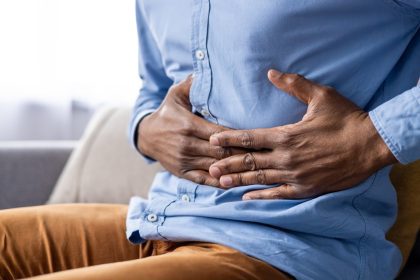Most people rarely discuss their bathroom habits, but paying attention to changes in your stool can provide crucial insights into your overall health. When your bowel movements become sticky, oily, or unusually textured, your body may be sending important warning signals that shouldn’t be ignored.
Sticky poop represents more than just an uncomfortable bathroom experience. This condition, medically recognized as a potential indicator of various health issues, affects countless individuals who may not realize their digestive system is struggling to function properly. Understanding what causes these changes and when to seek help could make a significant difference in your long-term health outcomes.
The consistency, color, and texture of your stool serve as important indicators of digestive health. When everything is working correctly, bowel movements should be relatively easy to pass and have a consistent brown color. However, when stools become sticky, greasy, or develop unusual characteristics, they often signal that something in your digestive process has gone awry.
The hidden dangers behind sticky bowel movements
Several serious health conditions can manifest through changes in stool consistency, making it essential to understand the potential underlying causes. These conditions range from dietary issues that can be easily addressed to more serious medical problems requiring immediate professional intervention.
High-fat diets represent one of the most common causes of sticky poop, leading to a condition called steatorrhea. When your digestive system struggles to break down and absorb excessive amounts of fat, the unprocessed fat gets eliminated through your stool, creating that characteristic sticky, greasy texture that’s difficult to flush away.
However, dietary factors only tell part of the story. More concerning causes involve problems with your body’s ability to produce or deliver bile, the essential substance that helps break down fats during digestion. When bile production or delivery becomes compromised, even normal amounts of dietary fat can become problematic.
Bile duct blockages create particularly serious situations that require immediate medical attention. These blockages prevent bile from reaching your small intestine, where it plays a crucial role in fat digestion. Without adequate bile, fats pass through your system largely unprocessed, resulting in pale, floating, foul-smelling stools that stick stubbornly to toilet surfaces.
Gastrointestinal disorders that affect bowel consistency
Multiple gastrointestinal conditions can alter stool consistency, creating the sticky texture that signals digestive distress. Irritable Bowel Syndrome, commonly known as IBS, affects millions of Americans and can cause significant changes in bowel movement patterns and consistency.
Inflammatory Bowel Disease presents another serious category of conditions that can dramatically affect stool characteristics. This umbrella term includes Crohn’s disease and ulcerative colitis, both of which cause chronic inflammation in the digestive tract. The inflammation associated with these conditions often leads to increased mucus production, which can create sticky, jelly-like strands in your stool.
Intestinal infections, whether bacterial, viral, or parasitic, can temporarily disrupt normal digestive processes and lead to sticky bowel movements. These infections often resolve with appropriate treatment, but they can cause significant discomfort and health complications if left untreated.
Food sensitivities and intolerances represent another category of digestive issues that can manifest through stool changes. When your body cannot properly process certain foods, the resulting digestive disruption can lead to mucus production and sticky stool consistency.
The serious warning signs of internal bleeding
Dark, sticky, tar-like stools represent one of the most concerning symptoms associated with sticky poop. This condition, medically known as melena, indicates the presence of blood in your digestive system. The blood appears black and sticky because digestive acids have had time to break it down as it travels through your intestinal tract.
Several serious conditions can cause internal bleeding that results in melena. Peptic ulcers, which are open sores that develop in the stomach lining, can bleed and cause dark, sticky stools. These ulcers often develop due to bacterial infections or prolonged use of certain medications.
Gastritis, characterized by inflammation of the stomach lining, can also lead to bleeding and subsequent dark, sticky bowel movements. This condition can result from various factors, including bacterial infections, excessive alcohol consumption, or chronic stress.
Cancer represents the most serious potential cause of internal bleeding that leads to sticky, dark stools. Cancers of the esophagus, stomach, or colon can all cause bleeding that manifests through stool changes. Early detection of these cancers significantly improves treatment outcomes, making it crucial to seek medical attention for persistent stool changes.
While certain foods and iron supplements can temporarily darken stool color, ongoing dark, sticky stools typically indicate a more serious underlying problem that requires immediate medical evaluation.
Recognizing the warning symptoms that demand attention
Sticky poop rarely occurs in isolation, often accompanied by other symptoms that provide additional clues about underlying health conditions. Understanding these associated symptoms can help you determine when to seek medical care and what information to provide to your healthcare provider.
Greasy or shiny stools that stick persistently to toilet surfaces or toilet paper represent classic signs of fat malabsorption. These stools often appear bulky and pale, with a distinctly foul odor that differs from normal bowel movement smells. The greasiness occurs because undigested fats create an oily film that makes the stool difficult to flush completely.
Floating stools often accompany sticky bowel movements, particularly when fat malabsorption is involved. While occasional floating stools may not be concerning, persistent floating combined with sticky consistency suggests ongoing digestive problems that warrant medical evaluation.
Black or tarry stools, as mentioned earlier, represent a medical emergency requiring immediate attention. These stools often have a distinctly sticky consistency due to the presence of digested blood, and they may be accompanied by other symptoms such as weakness, dizziness, or abdominal pain.
Jelly-like strands of mucus in your stool indicate increased mucus production, often associated with inflammatory conditions or infections. While small amounts of mucus are normal, visible mucus strands combined with sticky consistency suggest active inflammation or irritation in your digestive tract.
Effective strategies for improving digestive health
When sticky poop results from dietary factors, several lifestyle modifications can help restore normal bowel function and improve overall digestive health. These changes often provide relief within days or weeks, depending on the underlying cause and your body’s response to modifications.
Dietary revision represents the first line of defense against diet-related sticky poop. Working with a healthcare provider or registered dietitian can help you identify problematic foods and create a balanced eating plan that supports healthy digestion. This typically involves reducing excessive fat intake while ensuring adequate nutrition from fruits, vegetables, whole grains, and lean proteins.
Fiber intake plays a crucial role in maintaining healthy stool consistency and promoting regular bowel movements. Many Americans consume far less fiber than recommended, contributing to various digestive issues. Gradually increasing fiber intake through whole foods rather than supplements often provides the best results while minimizing digestive discomfort.
Proper hydration supports every aspect of digestive function, from food breakdown to waste elimination. Water helps maintain appropriate stool consistency and facilitates the movement of waste through your digestive tract. Adequate hydration becomes even more important when increasing fiber intake, as fiber requires water to function effectively.
Regular physical activity promotes healthy digestion through multiple mechanisms. Exercise stimulates intestinal contractions that help move waste through your system, reduces inflammation that can contribute to digestive problems, and supports healthy bile production and function.
Stress management represents an often-overlooked aspect of digestive health. Chronic stress can significantly impact bowel function, leading to various digestive symptoms including changes in stool consistency. Techniques such as mindfulness meditation, deep breathing exercises, and yoga can help reduce stress-related digestive issues.
Critical warning signs that require immediate medical attention
While lifestyle modifications can address many cases of sticky poop, certain symptoms indicate serious underlying conditions that require prompt medical evaluation. Recognizing these warning signs and seeking appropriate care can prevent complications and ensure proper treatment.
Persistent abdominal pain, especially when accompanied by sticky stools, may indicate serious digestive conditions requiring professional evaluation. The pain’s location, intensity, and timing can provide important clues about underlying problems.
Lower back pain combined with digestive symptoms sometimes indicates conditions affecting multiple body systems or serious infections that require immediate treatment. This combination of symptoms should never be ignored, particularly when accompanied by fever or other signs of illness.
Rectal bleeding or visible blood in stool represents a medical emergency requiring immediate attention. While hemorrhoids can cause minor bleeding, any significant blood loss or dark, sticky stools with blood require urgent evaluation to rule out serious conditions.
Noticeable mucus in stool, particularly when accompanied by other symptoms such as abdominal pain or changes in bowel habits, may indicate inflammatory conditions or infections requiring specific treatment approaches.
Additional warning signs include the inability to pass gas, persistent nausea or vomiting, unexplained weight loss, and prolonged changes in bowel habits. The feeling of incomplete evacuation after bowel movements can also indicate serious underlying conditions.
Understanding sticky poop and its potential implications empowers you to take control of your digestive health. While many cases result from dietary factors that can be easily addressed, persistent symptoms may indicate serious conditions requiring professional medical care. Paying attention to your body’s signals and seeking appropriate help when needed represents an important investment in your long-term health and well-being.
















